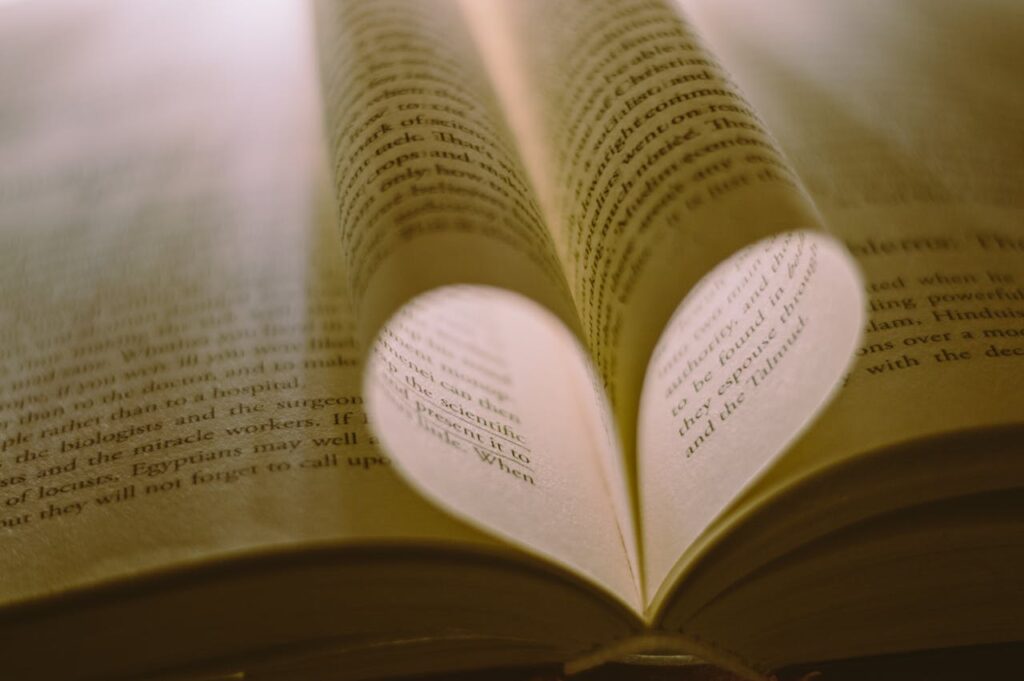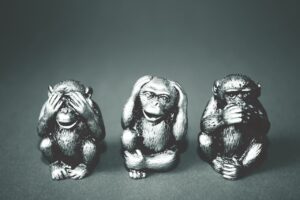Writing your Literature Extended Essay is a significant milestone in your IB Diploma Programme. Having gone through this process myself, I’ve gained valuable insights along the way. Now, I’m eager to offer guidance that can help you succeed. Choosing the ideal topic is crucial; it can transform this assignment from a basic requirement into fascinating personal academic research.
Understanding the Literature Extended Essay
Let’s look at what the Literature Extended Essay involves. According to the general IB criteria, this assignment offers an excellent opportunity to engage in a literary analysis or investigation of genuine interest. It is a unique platform to showcase your analytical skills, ability to construct a compelling argument, and, most importantly, your passion for literature. In my extensive experience, I’ve found that students who choose topics that resonate with them write perfect works and find the research process deeply satisfying and enlightening.
The nature of the Literature Extended Essay is not simply to fulfill a requirement. This paper encourages you to become a critical thinker, to question and analyze the narratives and voices that have shaped literary discourse. Whether it’s investigating the intricate layers of character development, the nuanced use of symbolism and theme, or the impact of historical and cultural contexts on literature, the Extended Essay challenges you to go far from just reading. It invites you to actively participate in the literary conversation, bringing your insights and interpretations.
In addition, the Literature Extended Essay is an exercise in academic rigor and discipline. It requires you to hone your research skills, critically examine multiple sources, and synthesize your findings into a coherent and persuasive argument. This process is beneficial not only to your academic growth but can also help to develop skills invaluable in real life: analytical thinking, effective communication, and the ability to engage with complex ideas critically.
So, this paper is an opportunity to leave your mark on the literary world and add your voice to the ongoing dialogue about what it means to be human, as reflected in literature.
Wondering about the expenses involved in creating an Extended Essay? Our latest article provides a precise cost analysis to help you budget effectively.

IB Literature Extended Essay Topics and Research Questions
Below are a few topics with accompanying research questions that span various literary genres, periods, and themes. These ideas may inspire you to think critically about literature and its myriad interpretations:
- The Evolution of the Tragic Hero in Classical vs. Modern Literature. How has the concept of the tragic hero evolved from classical Greek tragedies to contemporary literature?
- Gender Dynamics in 19th Century Literature. How do Jane Austen’s novels critique the gender dynamics and societal expectations of the 19th century?
- The Influence of Colonialism on Postcolonial Literature. How does Chinua Achebe’s “Things Fall Apart” depict the impacts of colonialism on traditional African society?
- The Representation of Mental Illness in Modernist Literature. How do Virginia Woolf’s novels reflect the modernist perspective on mental illness and its social implications?
- The Role of Nature in Romantic Poetry. How do William Wordsworth’s poems portray nature, and what role does it play in expressing romantic ideals?
- Dystopian Visions: A Comparison of 20th vs. 21st Century Literature. How do the dystopian visions in George Orwell’s “1984” compare with those in Margaret Atwood’s “The Handmaid’s Tale”?
- The Quest for Identity in Adolescent Literature. How is the quest for personal identity depicted in J.D. Salinger’s “The Catcher in the Rye”?
- Magic Realism and Cultural Identity. How does Gabriel García Márquez use magic realism in “One Hundred Years of Solitude” to research themes of cultural identity?
- The Gothic Tradition: Fear and Morality. In what ways does Mary Shelley’s “Frankenstein” use gothic elements to depict themes of morality and human fear?
- Satire and Social Commentary in “The Adventures of Huckleberry Finn.” How does Mark Twain use satire in “The Adventures of Huckleberry Finn” to comment on the social issues of his time?
- The Symbolism of the Travelling in Literature. How is the travel motif used symbolically in Homer’s “The Odyssey” and its significance in the context of ancient Greek society?
- Feminism and the Subversion of Gender Roles in Literature. How do the works of Charlotte Perkins Gilman, specifically “The Yellow Wallpaper,” subvert traditional gender roles?
- The Concept of Justice in “To Kill a Mockingbird.” How does Harper Lee’s “To Kill a Mockingbird” show the concept of justice within the context of racial inequality in America?
- The Impact of War on the Human Spirit in Hemingway’s Works. How do Ernest Hemingway’s wartime experiences influence his portrayal of the human spirit in “A Farewell to Arms”?
- Literary Devices in Depicting Cultural Clash in “The Joy Luck Club.” What literary devices does Amy Tan use in “The Joy Luck Club” to depict the clash of cultures between Chinese immigrant mothers and their American-born daughters?
- The Depiction of the American Dream in 20th Century American Literature. How is the American Dream portrayed and critiqued in F. Scott Fitzgerald’s “The Great Gatsby”?
- The Role of the Supernatural in Shakespeare’s Plays. How does William Shakespeare use supernatural elements in “Macbeth” to influence characters and advance the plot?
- The Concept of Freedom in Post-War American Literature. How do Jack Kerouac’s “On the Road” and other Beat Generation works depict the theme of freedom in post-war America?
- The Research of Existentialism in European Literature. How is existentialism represented in Albert Camus’ “The Stranger”?
- The Representation of Race and Identity in Contemporary African American Literature. How does Toni Morrison’s “Beloved” show the complexities of race and identity in post-Civil War America?
- The Use of Mythology in Modern Fantasy Literature. How does J.R.R. Tolkien incorporate Norse and Anglo-Saxon mythology elements in “The Lord of the Rings” series?
- The Literary Portrayal of Women during the Victorian Era. How do the female characters in Charlotte Brontë’s “Jane Eyre” challenge Victorian-era norms and expectations?
- The Impact of Digital Culture on Contemporary Literature. How do novels like Dave Eggers’ “The Circle” reflect societal concerns about digital culture and privacy?
- The Psychological Depth in the Characters of Chekhov’s Short Stories. How does Anton Chekhov use psychological realism to develop complex characters in his short stories?
- The theme of Isolation in 20th-Century Poetry. How do the poems of T.S. Eliot, particularly “The Waste Land,” convey themes of isolation and alienation in the 20th century?
- The Evolution of the Bildungsroman Genre in European Literature. How does “The History of Tom Jones, a Foundling” by Henry Fielding exemplify the evolution of the Bildungsroman genre?
- The Depiction of Political Upheaval in Latin American Literature. How is political upheaval and its impact on individuals depicted in Isabel Allende’s “The House of the Spirits”?
- The Influence of the French Revolution on British Romantic Poetry. How did the French Revolution influence the themes and styles of British Romantic poets such as William Blake and William Wordsworth?
- The Use of Satire in Dystopian Literature. How is satire used to critique societal norms in Aldous Huxley’s “Brave New World”?
- The Depiction of Artificial Intelligence in Science Fiction Literature. How does Philip K. Dick’s “Do Androids Dream of Electric Sheep?” depict the ethical implications of artificial intelligence and what it means to be human?
- The Representation of Urban Landscapes in Modernist Poetry. How do poets like T.S. Eliot and Ezra Pound depict urban landscapes to reflect the complexities of modern life?
- Family Dynamics in Contemporary Drama. How do modern playwrights like Tracy Letts use family dynamics to explore themes of dysfunction and reconciliation?
- The Influence of Fairy Tales on Modern Fantasy Literature. How have traditional fairy tales influenced the narrative structures and themes in J.K. Rowling’s “Harry Potter” series?
- The Literary Portrayal of Historical Revolutions. How is the French Revolution depicted in Charles Dickens’ “A Tale of Two Cities”?
- Religion and Morality in Medieval Literature. How are themes of religion and morality intertwined in Dante Alighieri’s “The Divine Comedy”?
- The Evolution of the Female Protagonist in 20th Century Literature. How have female protagonists in literature evolved from the early to late 20th century, particularly in works by Virginia Woolf and Toni Morrison?
- Cross-Cultural Conflicts in Immigrant Literature. How do authors like Amy Tan and Chimamanda Ngozi Adichie portray cross-cultural conflicts in their narratives?
- The Role of Dreams in Symbolic Literature. How are dreams used as a symbolic element in Franz Kafka’s “The Metamorphosis”?
- The Depiction of Suburban Life in American Literature. How does John Cheever use the setting of the American suburbs to critique societal norms and values?
- The Influence of Classical Literature on Modern Dystopian Works. How are themes from classical literature reinterpreted in modern dystopian novels like Suzanne Collins’ “The Hunger Games”?
- The Role of Silence in Dramatic Literature. How is silence used as a dramatic tool in Harold Pinter’s plays?
- The Literary Treatment of Exile and Displacement. How does Salman Rushdie address themes of exile and displacement in “Midnight’s Children”?
- Satirical Techniques in 21st-Century Political Novels. What satirical techniques are used in Gary Shteyngart’s “Super Sad True Love Story” to critique political and cultural issues?
- The Portrayal of Rural Settings in Southern Gothic Literature. How do rural settings enhance the themes of decay and grotesqueness in Flannery O’Connor’s stories?
- Mental Health Themes in Contemporary Young Adult Literature. How is mental health portrayed in John Green’s novels?
- The Role of the Sea in Literature. How is the sea used as a symbol in Ernest Hemingway’s “The Old Man and the Sea”?
- The Depiction of War in Children’s Literature. How is the theme of war depicted in Michael Morpurgo’s “War Horse”?
- The Concept of Heroism in Epic Poetry. How is the concept of heroism explored in Homer’s “Iliad”?
- The Impact of Globalization on Contemporary Literature. How does globalization affect cultural identity in Zadie Smith’s “White Teeth”?
- The Representation of Time and Memory in Magical Realism. How do authors like Isabel Allende in “The House of the Spirits” use magical realism to depict themes of time and memory?
Feel free to discuss your ideas with your advisor or peers. In my experience, feedback at the idea stage is precious, offering new perspectives and helping to refine your focus.
Tips for Choosing Literature Extended Essay Topics
Here are some tips from years of guiding students and my experiences to help you choose the best possible topic.
1. Start with Your Passions
Firstly, reflect on the works of literature that have moved you, intrigued you, or left you with questions. Your enthusiasm for a topic will make the research process more enjoyable and shine through in your writing. Essays grounded in genuine interest and passion are more compelling and insightful.
2. Research Broadly at First
Before narrowing down your topic, research a wide range of literature. This broad initial sweep is crucial for uncovering hidden gems and unexpected angles that might not be immediately obvious.
3. Consider the Scope
A common pitfall is choosing a topic that is too broad (or too narrow). The perfect topic is one that allows you to investigate in-depth without being overwhelmed by too much information or, conversely, struggling to find enough. Formulating a focused research question early on can help maintain the right balance.
Don’t let the stress of the IB curriculum hold you back.
Are you struggling to come up with topic suggestions for your IB Extended Essay? Or do you need help with Internal Assessment?
Our experienced writers can help you choose the perfect topic and assist you with any assignment.
You can order an Extended Essay tailored to your specific subject and requirements.
Our experienced IB writers are always ready to help.
Simply click:

4. Check the Availability of Resources
Before committing to a topic, ensure access to the necessary resources (primary texts, scholarly articles, and other academic works). As I know too well, there’s nothing more frustrating than choosing a topic only to find that the resources you need are inaccessible.
5. Consider Relevance
Consider how your topic connects to broader themes, contexts, or issues. According to general IB criteria, essays that demonstrate an understanding of the broader significance of the studied literature tend to score higher. I think these connections in your essay make it more impactful.
Topics to Read:
- IB Extended Essay Topics: Business and Management
- IB Extended Essay Topics: Physics
- IB Extended Essay Topics: Economics
- IB Extended Essay Topics: Sports and Health Science
- IB Extended Essay Topics: Geography
- IB Extended Essay Topics: Global Politics
- IB World Studies Extended Essay Ideas
- IB English A Extended Essay Topics
- IB English B Extended Essay Topics
- IB History Extended Essay Topics
- IB Oral Presentation Ideas and Examples
- 70+ CAS Project Ideas for IB Students
Conclusion
Choosing the right Literature Extended Essay topic allows you to engage deeply with texts, develop your analytical skills, and contribute to literary discussions. I’ve learned that passion, perseverance, and a critical eye are your best tools for this task. So, choose a topic that resonates and start writing your best work.
By the way, our team of professional writers is always ready to help you with an Extended Essay so you can spend more time preparing for your exams.




